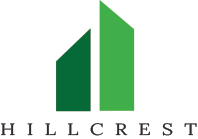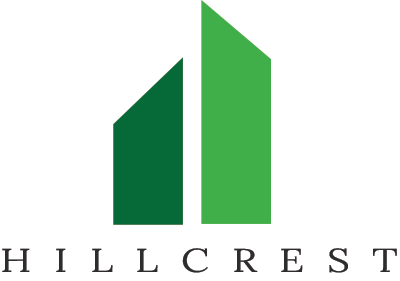 Serving as a board member of a Homeowners Association (HOA) is a role of significant responsibility and impact. The decisions made by an HOA board directly affect the well-being, property values, and quality of life of the community’s residents. As such, understanding both your rights and your obligations is crucial to fulfilling this role effectively.
Serving as a board member of a Homeowners Association (HOA) is a role of significant responsibility and impact. The decisions made by an HOA board directly affect the well-being, property values, and quality of life of the community’s residents. As such, understanding both your rights and your obligations is crucial to fulfilling this role effectively.
1. Fiduciary Duty: Acting in the Best Interest of the Community
One of the most critical responsibilities of an HOA board member is to act in the best interest of the community. This duty is known as fiduciary duty, which requires board members to make decisions that benefit the association as a whole, rather than individual interests. This includes ensuring that all decisions are made with care, diligence, and loyalty to the community.
Fiduciary duty also involves making informed decisions. This means board members must do their due diligence in researching and understanding the issues at hand, seeking expert advice when necessary, and ensuring that their actions are both legally and ethically sound.
2. Understanding and Enforcing Governing Documents
HOA board members are responsible for understanding, interpreting, and enforcing the association’s governing documents. These documents typically include the Declaration of Covenants, Conditions, and Restrictions (CC&Rs), bylaws, and rules and regulations. These documents set the framework for how the community is managed and outline the rights and responsibilities of both the board and the homeowners.
Enforcing these documents consistently and fairly is key to maintaining order and harmony within the community. Board members must ensure that all residents, including themselves, adhere to the rules set forth. When enforcing these rules, it is important to do so in a manner that is consistent, transparent, and respectful of homeowners’ rights.
3. Financial Management and Budgeting
One of the board’s primary responsibilities is the management of the HOA’s finances. This includes creating and overseeing the budget, managing reserves, collecting assessments, and ensuring that the association remains financially stable. Proper financial management is essential for maintaining the community’s infrastructure and services, from landscaping and maintenance to amenities and security.
Board members must be familiar with the association’s financial statements, understand the budgeting process, and ensure that all expenditures align with the community’s needs and long-term goals. Transparency in financial matters is critical; homeowners should have access to financial information and be kept informed about the association’s financial health.
4. Legal Compliance and Risk Management
HOA board members are responsible for ensuring that the association complies with local, state, and federal laws. This includes not only the governing documents but also fair housing laws, employment regulations, and any other applicable statutes. Non-compliance can result in legal action against the association, which can be costly and damaging to the community.
In addition to legal compliance, risk management is another crucial aspect of the board’s responsibilities. This involves identifying potential risks to the community—such as safety hazards, insurance issues, and vendor contracts—and taking steps to mitigate these risks. Regularly reviewing and updating insurance policies, conducting safety inspections, and ensuring that contracts with vendors are in the association’s best interest are all part of effective risk management.
5. Communication and Transparency
Effective communication is essential for a successful HOA board. Board members must ensure that they communicate clearly, openly, and regularly with homeowners. This includes keeping residents informed about board decisions, upcoming meetings, financial matters, and community events. Transparent communication fosters trust between the board and the homeowners, which is vital for maintaining a harmonious community.
Regular meetings, newsletters, and online platforms can be used to keep residents updated and engaged. Additionally, board members should be approachable and open to feedback, allowing homeowners to voice their concerns and suggestions. This two-way communication helps the board stay connected to the needs and desires of the community.
6. Conflict Resolution
Disputes and conflicts are inevitable in any community, and the HOA board often plays a key role in resolving these issues. Whether the conflict is between homeowners or between a homeowner and the board, it is important that board members handle disputes fairly and impartially. The board should establish clear procedures for addressing grievances and ensure that these procedures are followed consistently.
Mediation and open dialogue can often resolve conflicts before they escalate. It’s important for board members to approach conflicts with a solution-oriented mindset, focusing on the well-being of the entire community.
7. Continuing Education and Training
HOA board members should be committed to ongoing education and training. The landscape of HOA management is constantly evolving, with new laws, regulations, and best practices emerging regularly. By staying informed and educated, board members can better serve their communities and make more informed decisions.
Many states offer or require training for HOA board members, covering topics such as financial management, legal compliance, and governance. Additionally, property management companies often provide resources and guidance to help board members stay up-to-date.
Conclusion
Serving as an HOA board member is both an honor and a responsibility. Understanding your rights and responsibilities is crucial to fulfilling your role effectively and ensuring the success of your community. By acting in the best interest of the association, managing finances responsibly, enforcing governing documents fairly, and communicating transparently, you can help create a thriving and harmonious community.
At Hillcrest, we understand the complexities and challenges that come with being an HOA board member. Our team is here to support you every step of the way, providing expert guidance, comprehensive management services, and the resources you need to succeed. Contact us today to learn how we can help your community thrive.





